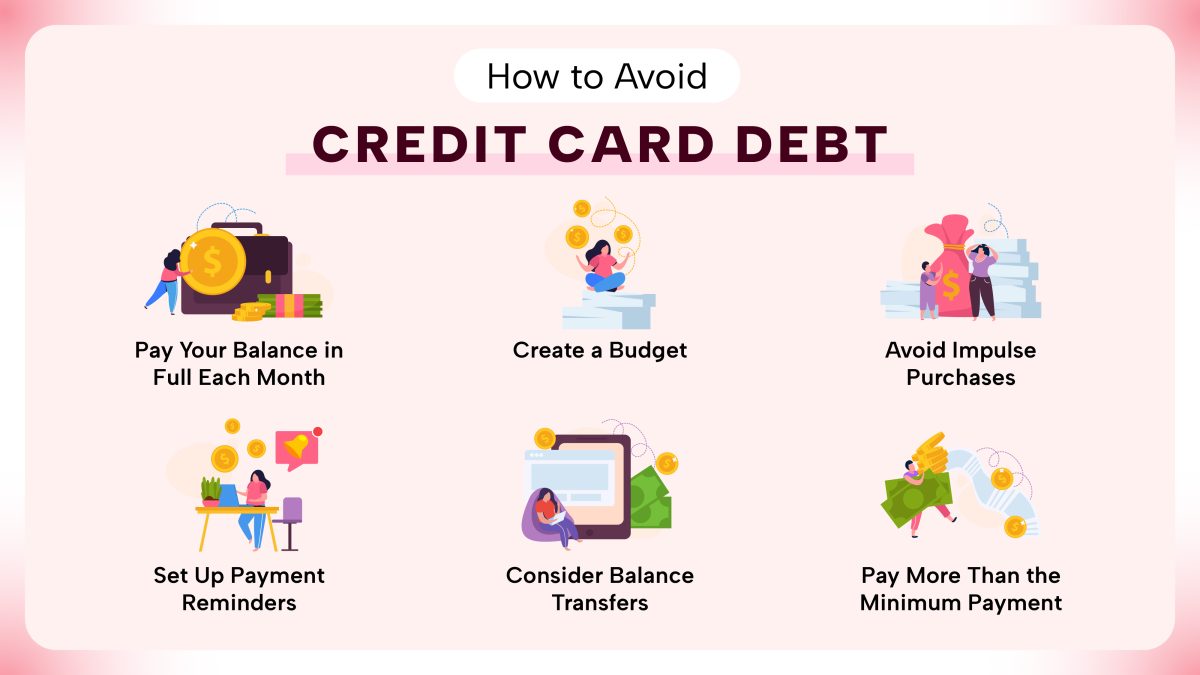1. High-Interest Payments
One of the biggest risks of carrying credit card debt is the high interest that accumulates if you don’t pay off your balance in full each month. In Malaysia, credit card interest rates can range from 15% to 18% per annum, adding up quickly if you only make the minimum payment.
For example: If you have RM5,000 in credit card debt and only make the minimum monthly payment of RM200, paying off the debt could take years, with a significant portion of your payments going toward interest rather than reducing the principal.
2. Debt Accumulation and the Snowball Effect
Once you start accumulating credit card debt, it can quickly become difficult to manage. Interest compounds on your remaining balance each month, making it harder to pay off the debt over time. This snowball effect means that even small purchases made on a credit card can turn into long-term debt if not paid off quickly.
Many Malaysians are tempted to use their credit card for unplanned purchases, thinking they’ll be able to pay it off later. However, this mindset often leads to debt accumulation that becomes overwhelming.
3. Damage to Your Credit Score
Your credit score in Malaysia plays a crucial role in determining your financial credibility. Credit card debt can significantly harm your credit score, especially if:
- You miss payments.
- You carry a high balance close to your credit limit.
- You default on payments entirely.
A low credit score can make it harder to get approved for loans, mortgages, or even future credit cards. Additionally, if you do get approved for loans, you may face higher interest rates due to the perceived risk, further adding to your financial burden.
4. Increased Financial Stress
Carrying a significant amount of credit card debt can cause immense stress. Many Malaysians with high levels of debt find themselves constantly worrying about how to make payments, cover everyday expenses, and get out of debt.
This stress can affect various aspects of life, from personal relationships to work performance, and it often leads to a cycle of borrowing just to keep up with the debt. Some individuals may even turn to other forms of high-interest borrowing, such as personal loans or cash advances, to stay afloat, which only worsens their financial situation.
5. Impact on Savings and Future Goals
Credit card debt can also limit your ability to save for the future. When a large portion of your monthly income goes toward paying off high-interest debt, you have less money to save for retirement, education funds, or emergencies.
For example, rather than building an emergency fund or investing in your future, you might be stuck making minimum payments on your credit card. Over time, this can severely impact your ability to achieve financial goals, such as buying a home or retiring comfortably.

While credit card debt can have serious consequences, there are steps you can take to avoid falling into debt or to get out of it if you’re already struggling.
- Pay Your Balance in Full Each Month
The simplest way to avoid credit card debt is to pay off your balance in full by the due date. This allows you to avoid interest charges entirely and keep your finances under control. For more tips on managing credit cards wisely, check out our article, Swipe Smarter: A Guide to Avoiding 5 Credit Card Pitfalls, where we dive deeper into how to use your credit card responsibly and steer clear of common financial traps. - Create a Budget Establish a monthly budget that includes all your expenses, including credit card payments. Track your spending and ensure you’re living within your means. This will help you avoid unnecessary debt.
- Avoid Impulse Purchases Credit cards can make it easy to spend impulsively. Before making any purchase, ask yourself if it’s necessary and if you can afford to pay it off in full when your bill arrives. If the answer is no, hold off on the purchase.
- Set Up Payment Reminders Set up payment reminders or automate payments through your bank to ensure you never miss a payment. Even a single missed payment can result in late fees and interest charges that add to your debt.
- Consider Balance Transfers If you already have credit card debt, consider transferring your balance to a card with a lower interest rate. Many Malaysian banks offer balance transfer promotions with low or 0% interest rates for a limited time, allowing you to pay off your debt faster without accumulating additional interest.
- Pay More Than the Minimum Payment Always try to pay more than the minimum payment. Paying only the minimum keeps you in debt longer and increases the amount you’ll pay in interest. Even small extra payments can help reduce your overall debt more quickly.
Manage Credit Card Debt Wisely
Credit cards can be powerful financial tools when used responsibly, but they can also lead to significant debt if not managed carefully. The key is understanding how credit card debt can impact your life and taking proactive steps to avoid it. By budgeting wisely, paying off your balance each month, and staying mindful of your spending, you can avoid the pitfalls of credit card debt and maintain financial health.

